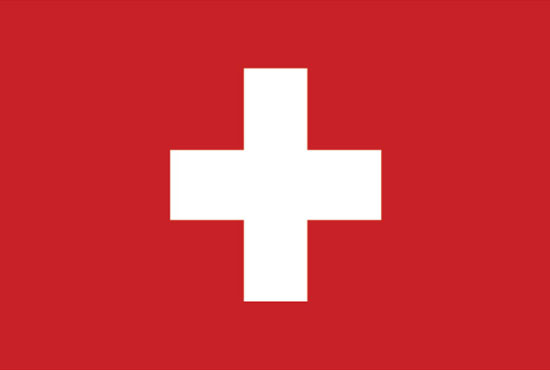Looking for a guide to travel to switzerland? If you still don’t know What do you need to travel to Switzerland?, we are going to explain everything you have to prepare for entering Switzerland and leaving. general information and Requirements to travel to Switzerland with its customs, laws and limitations in the customs of Switzerland. You have available this travel guide with the emergency telephone numbers, the best time to travel to switzerland and everything you need to know to travel safely.

SWITZERLAND DATA
| Capital | Swiss (See map) |
| Languages | German, French, Italian, Retro Roman |
| Currency | Swiss franc |
| Visa? | Nope |
| Voltage | 230 volts |
| Frequency | 50Hz |
| Plug | Type-C |
Switzerland general information
With the current situation you may have to fill out some kind of form to travel to Switzerland or covid Switzerland requirements, so we recommend you check What do you need to travel to Switzerland? or any destination in the country in this travel guide.
Switzerland is an extremely expensive country where all the prices of services and basic products have a higher cost compared to other European countries. In particular, the costs of medical services are extremely onerous, which is why it is considered essential to travel with a medical expenses insurance with sufficient coverage in case of medical emergencies.
Guide to travel to Switzerland entry requirements
These are the Swiss entry requirements:
For tourist trips of less than 90 days, the entry authorities may request:
- economic solvency test.
- Hotel Reservations.
- Invitation card.
- Proof of leaving the country.
Guide to travel to Switzerland requirements to leave
Once your stay is over, these are the Swiss exit requirements:
When leaving Switzerland, you do not have to comply with any special customs regulations for your private goods. No export duties to pay.

Swiss customs information
They may enter Switzerland without paying taxes:
- Items and luggage for personal use that will not remain in the country, for example, clothing, hygiene items, sporting goods, cameras, mobile phones, laptops and travel instruments.
- Travel provisions may be imported duty free. This includes ready-to-eat food and non-alcoholic beverages for the day of travel. Attention: it is forbidden to bring meat and dairy products, as well as most fruits and vegetables from third countries (ie from non-EU countries).
- Other goods (souvenirs, food, medicines, etc.). If you import merchandise (furniture, electronics, auto accessories, etc.), the following provisions apply:
- The entry of cash and valuables is allowed in Switzerland, however, if you travel with more than CHF 10,000, you must declare it.
More information in: https://www.bazg.admin.ch/bazg/en/home/information-individuals/travel-and-purchases–allowances-and-duty-free-limit/importation-into-switzerland.html
Swiss local currency
- The legal tender in Switzerland is the Swiss franc («Fr», CHF). This is the only currency accepted in shops, restaurants and service stations. However, the euro and the US dollar are widely accepted.
- The Swiss franc floats freely relative to other currencies. It is recommended to check the current exchange rate close to the date your trip begins.
For more information regarding the local currency or payment methods of the country, consult the section recommendations in money to travel abroad.
Swiss customs
Make sure you know the customs of the country so you can know what the best time to visit switzerland. Here are the most common.
There is nothing special to take into account.
Is it safe to travel to Switzerland?
- Switzerland is an alpine country, so you must take into account the type of appropriate clothing depending on the place and season of the year in which you will visit the country. In the winter season, temperatures vary below zero in urban areas and up to -20°C in the mountains. In summer on average it is 23°C.
- Despite the high level of security prevailing in Switzerland, it is advisable to pay attention to handbags, wallets and other personal belongings in crowded places such as train stations and tourist spots
- In an emergency, follow the directions of local authorities.
Laws of Switzerland
- It is recommended that you always carry a copy of your passport with a visa at hand during your stay in Switzerland, as well as obtain a copy of them and keep it in a safe place.
- Illicitly transporting psychotropic substances is typified as a serious crime.
- If you break traffic regulations you can be sanctioned with a high fine.
- Driving while intoxicated (the allowed alcohol limit in Switzerland for drivers is 0.5 gr/l) is considered a criminal offense and not an administrative one, so you can be arrested and face a driving ban order in this country.
Other recommendations in guide to travel to Switzerland
- Do not forget to notify your bank that you will travel to Switzerland, so that they can inform you how to act in case of theft or loss of your credit cards in Switzerland, or problems that you could have when withdrawing money with your cards abroad.
- Recommendations and more advice by topic or type of traveler, visit the section of recommendations for your trip abroad of this guide to traveling to Switzerland.
FAQ (Frequently Asked Questions)
What are the emergency telephone numbers in Switzerland?
Police: 117
Firefighters: 118
Are tourists entitled to free medical care in Switzerland?
Tourists are not entitled to free medical care in Switzerland. You must have a travel insurance.

Leave A Comment